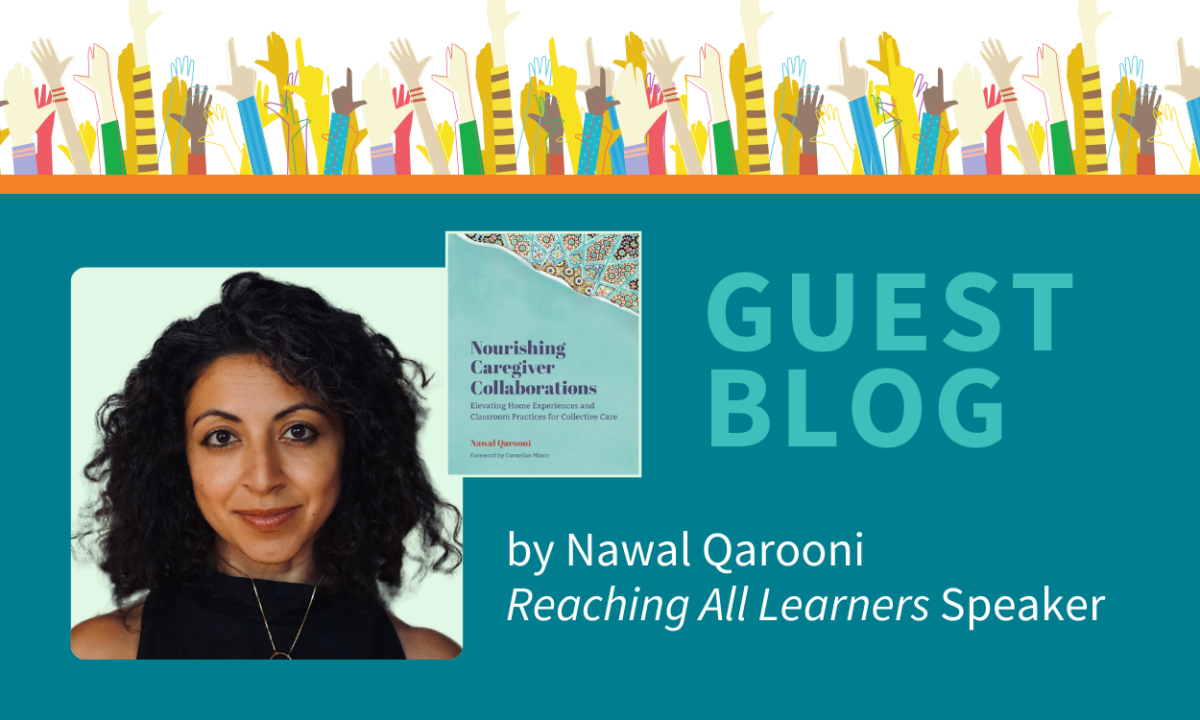It has been long proven that collaborating in meaningful ways with families of the students in our care lead to overall student growth and achievement, as family partnerships springboard learning and nourish children’s literacy lives in authentic ways.
This work need not feel like an add-on or burdensome. Instead, in my work across the country with teachers and districts, we’ve seen overwhelmingly positive outcomes when it comes to student confidence, attendance, and even comprehension.
In Nourishing Caregiver Collaborations, I lay out a collective care framework that elevates what families are already doing to grow their children’s literacy lives. Here are three tips to get the work started.
1. It is necessary to redefine what family engagement really entails.
With a little bit of intentionality, teachers can provide meaningful suggestions that make it more clear for families how they can continue to support their children – not necessarily on site at school, when we dictate that they come, but instead at home, in their own spaces. When schools mandate that families attend events and solely base their understanding of caregivers based on their abilities to attend or not, we miss massive opportunities to better get to know the kids in our classroom, and all that their families bring to the table. By taking down those barriers and adjusting to at-home suggestions, we can validate what families are already doing, drawing parallels in the work of caregivers and educators (which is quite synonymous).
2. Unpack our biases around how families should look, sound, or act.
There is no one way that families should be, but we all inadvertently carry our assumptions and biases – because we are human. As a result, this often affects the ways we interact with and potentially privilege or further disadvantage certain families. When we spend time to reflect on how our definitions of family was created, and set that down, widening our understanding of chosen family and looking at a variety of inclusive models in our colleagues’ stories, we can more lovingly engage with all learners.
3. Take a close look at our teaching language, projects, and classroom texts.
Sometimes, we do things one way because that’s the way it’s always been done. And sometimes, the work we ask our learners to do alienates a child and their family’s ways of being. We might often say “ask your mom and dad to…” or request signatures for field trips from “mom and dad.” We might have always assigned a family tree project. We might have always, for years, read the same cornerstone texts for read aloud: ones that depict families in a white, heteronormative way. Perhaps the curriculum we are forced to use suggests this language; perhaps the text excerpts are all from “classics.” To reach all learners, it is important that we take a magnifying lens to our language, project, and classroom text, to ensure that we are as inclusive as possible. This means diversifying the mentor and model books to represent all sorts of families and communities. And it means revising assignments so that all children can participate without feeling like parts of themselves need to be checked at the door and left out completely.
To reach all learners in our teaching, we must be heart-first educators, who think often of the ways our language, actions, and communication methods land for children and families. Underlying it all is the understanding that we cannot separate knowing children from deeply knowing their families too.





